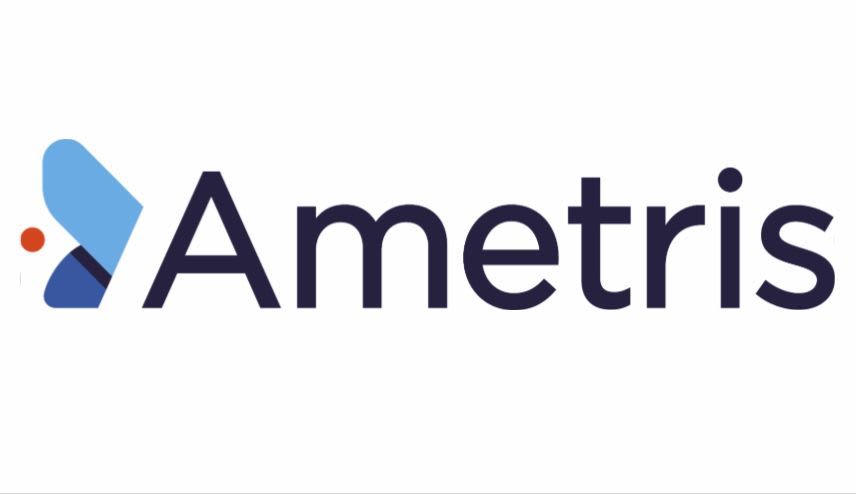Many of the properties that make the nose an effective way for an illicit drug user to get a “fix” are actually qualities that doctors and patients are seeking for legitimate treatments — a noninjection form that delivers medication in highly targeted, quickly absorbed doses. Britannia Pharmaceuticals Ltd., a U.K.based niche pharmaceuti cal company is breaking new ground with a novel drug delivery platform — a nasal powder formulation — to meet such a need. The first compound the company has selected using this unique delivery platform is apomorphine for treating the symptoms associated with Parkinson’s disease. Apomorphine was a natural selection for the privately held compa ny, whose areas of expertise lie principally in the development of prod ucts for Parkinson’s disease and opiate detoxification. Apomorphine has been used for years in injectable form to provide a quick rever sal for Parkinson’s patients experiencing the immobility associat ed with an “off ” period. Britannia’s version of subcutaneous apomorphine for patients with latestage Parkinson’s disease is marketed as APOgo in the U.K. and certain European Union countries. While apomorphine, given by subcutaneous injection into the skin, starts to work much more quickly than oral medications — within 5 to 10 minutes — it is associated with several disadvantages. The nonfriendly route of administration, which is associated with skin irritation and pain, affects patient compliance and acceptability. NOSE With a unique powder nasal system that delivers medication in welltolerated, quickly absorbed doses, Britannia Pharmaceuticals hopes to achieve the sweet smell of success with apomorphine powder THE knows 46 Ap r i l 2002 PharmaVOICE M By Taren Grom APOMORPHINE powder Parkinson’s patients, depending upon the progression of the disease, may have to inject several times a day to restore mobility or pre vent a period of disability from occurring. Many patients find that each dose of their existing treatment becomes shorter and expe rience “wearing off,” or very sudden and unpredictable “onoff” fluctuations. “The history behind our nasal powder tech nology comes from our apomorphine subcuta neous injection product,” says Peter Lambert, technical manager at Britannia. “Apomorphine can be quite painful to inject. It can cause nod ules on the skin at the injection site and because these patients are in the late stage of the disease and have to use the product up to six times a day, depending on their disease state, it’s not an ideal way of delivering the drug.” User FRIENDLY “We wanted to develop a patientfriendly route of administration,” Mr. Lambert says. “Apomorphine is not available orally, because of its metabolic firstpass effect, thus we came to the nasal route. When we started to consid er developing a nasal formulation away from our subcutaneous route for apomorphine, we did first consider a liquid solution. But we felt that the technical problems, namely, apomor phine’s instability in this formulation and its irritant properties, were almost insurmount able to get a product to market.” Through a collaboration with Professor Frans Merkus, chief scientific advisor to Bri tannia’s nasal division, the company began investigating the concept of delivering apo morphine as a powder. “Initially this method helped with the stability of the product, but we found the rate of absorption was not optimal,” Mr. Lambert says. Ultimately, Britannia developed a nasal powder that dissolves very quickly in the nose. “We’ve come up with a formulation that produces blood levels that peak very fast, has a bioavailability that is in the same range of the injection product, and is absorbed very quickly,” Mr. Lambert says. “On top of that, the powder formulation provides a particle size range that is comfortably held in the nose. With delivering powders to the nasal cavity we had to guard against inducing a sneeze reflex.” The company’s powder formulation had to overcome the nose’s protective mechanism, which is designed to filter out particles and then clear them to the back of the throat so they can be swallowed, thus stopping particles from entering the lung. “Clearance happens within 10 to 15 min utes of a particle being deposited in the nose, so it is necessary for our for mulation to dissolve very rapidly,” Mr. Lambert says. “In the volumes of apomor phine that we are deliver ing, our powder is held very comfortably in the nose, with no irritant effect at all.” According to Britannia executives, apomorphine as a liquid has been demon strated to be highly irritant when delivered to the nose. “With liquid delivery, the whole nasal cav ity is bathed with the substance, exposing it entirely to the active compound,” Mr. Lam bert says. “If it’s an irritant molecule that obvi ously exposes the whole of the area to the irri tation. With the delivery of our powder particles, there is a localized deposition to spe 47 PharmaVOICE Ap r i l 2 002 With delivering powders to the nasal cavity, Britannia had to guard against inducing a sneeze reflex. Britannia Pharmaceuticals Ltd., located in the United Kingdom, is a pri vate virtual niche pharmaceutical company specializing in products for diseases with orphan indications,which are normally notdevelopedby larger pharmaceutical companies.Britannia does not maintain its own facilities for testing, manufacturing, and clinical work managing these aspects of drug development with a virtual environment,teamed with medical doctors, biochemists, pharmacists, biologists, and business graduates.Whatever outside external expertise and facilities are need ed for the development and manufacture of the company’s products, is sought out,directed,and supervised by the Britannia team. Britannia is a Forum Group company,which is among the first “virtu al companies” in life sciences in Britain.The Forum Group’s mission is to develop niche brands and industrial valueadded partnerships exploit ing life sciences through dietary, therapeutic, and functional excellence by constant interchange with customers, suppliers, and consumers worldwide.The Forum Group, in turn is part of the Ajinomoto Group of Companies, a Japanese manufacturer of quality ingredients with involvement in the pharmaceutical development arena. BRITANNIA’S LICENSED PRODUCTS: APOGO (APOMORPHINE):Currentlyavailable in an injectable form in the U.K. and other European countries, provides a quick reversal for Parkinson’s patients suffering the immobility associated with an “off” period. Adsurf (pumactant): Is a highly promising therapy being tested for its efficacy as a treatment for surgical adhesions and asthma. Patients treated with pumactant at the time of surgery will have a much lower incidence of surgical adhesions. Asthma patients who inhaled pumac tant are able to totally abolish the early response when exposed to allergen provocation. The essence of pumactant’s new treatment potential is its ability not only to replace surfactant or surface coating that is disrupted by illness and medical procedures, but also in its abili ty to encourage increased production of endogenous surfactant. BritLofex (lofexidine):Marketed in the U.K.,this drug is anonaddictive treatment to help patients detoxify from opiates. BritLofex has been used in the U.K. since 1991 where it has achieved the status of market leader, with approximately 23,000 detoxifications per year. In addition, BritLofex’s proven level of safety in the U.K. allows for the drug to be used in an outpatient context. Currently the National Institute of Drug Abuse (NIDA) is overseeing a Phase III trial for the use of BritLofex in drug detoxification, with the goal of submitting the treatment for U.S. FDA approval within the next two years. AVirtual Model APOMORPHINE powder cific sites in the nasal cavity, thereby exposing less surface area to the drug. And because of the rapid dissolution, we think that the residence time of the particles in the nose also is reduced. So the potential for irritation is reduced as our Phase II clinical trials have shown.” “We think we really are cracking something with our nasal powder for mulation, which hasn’t been tackled before, particularly because of the perception that nasal powders are inherently irritant substances and because there’s an additional dissolution step prior to absorption,” says Alex Duckworth, director of Britannia. Powder delivery to the nose as opposed to liquid delivery to the nose has been viewed as counter intuitive. According to Britannia executives, major pharmaceutical companies have shied away from developing a nasal powder because of complex manufacturing procedures and the per ception that powder is an irritant substance to the nose. Instead, a num ber of large companies are looking to liquid delivery models and tech nologies for nasal delivery of their products, especially for biotech molecules, macromolecules, and protein peptides. “To our knowledge, Britannia is the only company working with nasal powder,” Mr. Duckworth says. “I think I’m right in saying there aren’t any nasal powder pharmaceutical products currently marketed. That is the unique part of our technology.” “We’ve been able to show that by delivering a particular type of pow der into the nasal cavity, we can get absorption that is at least as quick as the solution delivery, and in some cases it appears that it might even be slightly quicker,” Mr. Lambert says. “The technology we have is for rapid absorption. We’re not looking at sustaineddelivery or modified delivery process. We are looking to replace injection technology.” Phase II clinical trials of Britannia’s apomorphine in powder nasal delivery in the U.K. thus far have shown good results. “We were pleasantly surprised to see just how good those results were in our Phase II trials for apomorphine nasal powder in Parkinson’s dis ease patients,” Mr. Duckworth says. “We determined that the speed of onset was in minutes, comparable to subcutaneous injections, which have been used for years in Parkinson’s disease. In addition, the bioavail ability was comparable to the injection formulation. These were excel 48 Ap r i l 2002 PharmaVOICE Alex Duckworth and Peter Lambert breaking new ground with a nasal powder formulation of apomorphine for treating Parkinson’s disease symptoms. lent results. The fact that in the oneweek study we didn’t see any irri tation, just underlines for us the potential that we have with nasal pow der apomorphine.” The company currently is planning Phase III clinical trials for its powder apomorphine for Parkinson’s patients, and hopes to achieve approval for the product in the U.K. in fourthquarter 2003. The NEXT Step According to Kalorama Research, the market for drugs employing advanced drugdelivery techniques will surpass $7 billion by 2005, a market which Britannia hopes to tap. In addition to a number of indications that apomorphine could be used for just within Parkinson’s disease progression, the company is examining its powder formulation technology’s potential in other ther apeutic areas, including male erectile dysfunction. “We are about to start a Phase I study in male erectile dysfunction,” Mr. Duckworth says. “We are finishing off the design of that at the moment. This is a very interesting area for us, because of the product developed by TAP, which has been launched in Europe as a sublingual apomorphine for treating male erectile dysfunction.” Britannia views its nasal powder delivery as having the potential to become a platform technology for delivering other drugs. “We are look ing at drugs that are fairly potent, as only a limited amount of powder can be delivered into the nasal cavity, and compounds that are conven tionally given as an injection,” Mr. Duckworth says. “Ultimately, if we can develop the technology further, we hope to be able to deliver macro molecules and protein peptides, which are on the horizon.” The company has another product that it is putting through its nasal powder formulation technology, which is DHE for migraine treatment. Overcoming PERCEPTIONS “The general concept of snorting, for want of a better word, powders into the nose is associated with recreational drug use, snuff and cocaine, and the destruction of the nasal cavity that occurs out of cocaine use,” Mr. Lambert says. “As soon as we mention powder delivery, cocaine comes up in the conversation very quickly. We are breaking boundaries.” The company acknowledges that it will have to overcome such per ceptions through education. “Pharmaceutical company executives will need to be educated about the product, but it’s not going to be an education project with respect to the health professionals or patient populations,” Mr. Duckworth says. “Once a product has been proven through its clinical trials and regis tration process, the benefits will speak for themselves in terms of faster speed of onset and better riskbenefit ratio.” Mr. Lambert concurs, “Patients who can go from not being able to move, stand, or barely able to speak are returned almost completely to their usual mode of function within five or six minutes of snorting apo morphine nasal. In clinical trials, there’s absolutely no reticence at all within the patient population.” A VIRTUAL Company “The ownership of the products and the intellectual property is entirely Britannia’s,” Mr. Duckworth says. “But we have no manufactur ing facilities or clinical research units. We subcontract out all our work. We have our own clinical department that oversees all the clinical trials, and use clinical research units and clinical research organizations to do the actual conducting of the trials and to provide us with the database supervision that we wouldn’t be able to provide ourselves.” APOMORPHINE powder The advantage of this model, company executives say, is that it allows them to mini mize overhead and provide the flexibility. “We can switch projects very easily if some thing is not working,” Mr. Duckworth says. “We are not saddled to an expertise base and can switch to another facility for a different type of product or a different therapeutic area. This makes us a much faster moving and more streamlined type of pharmaceutical company.” This model also allows the company to work in niche indications with small patient popula tions. “Britannia doesn’t work with drugs that have an equivocal effect or are me too drugs, our drugs have absolutely clear patient benefits,” Mr. Duckworth says. “Large overhead demands a certain return on investment products. We’re able to deal in indications that may be less attractive to bigger companies but have a very clearly defined clinical need. This is why we describe our developments as being physician driven, because we respond directly to the clin ical needs of the market.” The company, which was founded in 1981, intends to move beyond its home base in the U.K., and enter the U.S. market with its nasal powder apomorphine product. “We have a current partner for apomor phine subcutaneous, which is Mylan Laborato ries in the states,” Mr. Duckworth says. “Mylan is following our clinical program with a great deal of interest.” In the U.K., Britannia handles the market ing of APOgo; throughout the rest of Europe the company has teamed up with several industrial partners, including Eli Lilly, which is charged with the Holland market. # PharmaVoice welcomes comments about this article. Email us at [email protected]. Apomorphine powder inhaler Britannia’s drug delivery device reduces the residence time of the particles in the nose. ALEX DUCKWORTH Director,Britannia Pharmaceuticals Ltd., Surrey, United Kingdom;Britan nia is a privately held, virtual niche pharmaceutical company specialising in products for diseases with orphan indications, which are normally not developed by larger pharmaceuti cal companies PETE LAMBERT.Technical manager,Britannia Pharmaceuticals Ltd., Surrey, United Kingdom; Britannia is a privately held, virtual niche pharmaceutical company specialising in products for diseases with orphan indications, which are normally not developed by larger pharma ceutical companies Experts on this topic
An article from


The Nose Knows
Filed Under:
Research & Development











